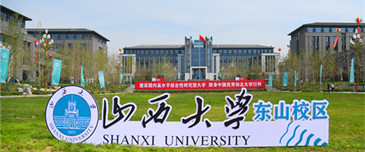College of Life Sciences
Updated: 2019-10-16
This College of Life Science was founded in 1949, as one of modern China's first biology faculties and it has a distinguished history, excellent teaching staff and a certain amount of influence among similar colleges across China. It has key provincial majors, a key Education Ministry laboratory, and a provincial biological experiment teaching center, and its Zoology and Botany Museum functions as a national site for the popularization of science and technology among adolescents.
The undergraduate program covers bioscience, bioengineering, and food science and engineering, and has a bioengineering research center, offering three bachelor degree programs. The college can confer a doctorate in biology and handle post-doctoral research and enrolls about 150 undergraduates, 100 master's and doctoral degree candidates and three or more postdoctoral research fellows yearly. At least a dozen of its lecturers have had academic exchanges or cooperation in the US, UK and other countries.
The college currently has 14 professors, 18 associate professors, 12 lecturers and one assistant lecturer, at least 50 percent of them with a PhD. It has nine doctoral advisors, 36 postgraduate advisors and a vast amount of equipment. It has handled almost two dozen national scientific research projects and over 100 provincial or ministerial projects, and has published at least 260 papers in Chinese and international academic journals. It also holds 16 national patents and many of its scientific research findings have been put to commercial use and have brought economic and social benefits.
The college has helped establish the following: the Fenjiu Group Postgraduate Education and Innovation Center for Fenjiu Engineering Projects with the Shanxi Xinghuacun Fen Wine Factory, a provincial Food Engineering Research Center with the province’s Food Research Institute, and an Enterprise Technology R&D Center with the Taiyuan Good and Good Food Co, for the purposes of scientific and technological development and social service in line with provincial Economic and Trade Commission goals. It has also helped set up the university's School of Bioengineering in conjunction with the provincial Agricultural Sciences Academy to develop talented personnel and expand education. In recent years, its lecturers have had some important achievements in the field of economic construction and applied technology with scientific and technological value, and good market prospects.
INTERNATIONAL EDUCATION EXCHANGE
-
 Confucius Institutes
Confucius Institutes The Confucius Institutes are set up worldwide by the Chinese Language Council International to promote Chinese language and culture.
-
 Enrollment of Foreign Students in Shanxi University
Enrollment of Foreign Students in Shanxi University Join us and explore our wide range of study programs and enjoy a first class educational experience that makes you a part of a lively global community.

